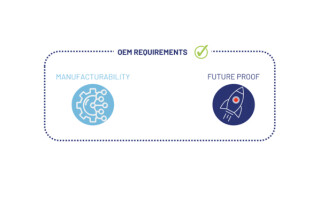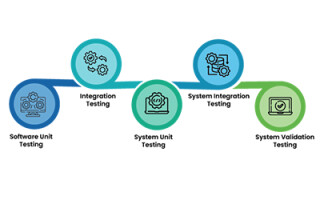3Ccar and Partners Improve Automated Vehicles
September 19, 2019
Press Release

The European project 3Ccar set out to meet the demands of electromobility and automated driving with a new system approach in vehicle architecture.
The European project 3Ccar, which stands for “Integrated Components for Complexity Control in affordable electrified cars,” set out to meet the demands of electromobility and automated driving with a new system approach in vehicle architecture.
Funded by the European Union, the German Federal Ministry of Education and Research (BMBF), other participating countries and partners from industry, Infineon Technologies AG managed and coordinated the research project, which commenced in 2015 and lasted 41 months.
The objective was to reduce complexity while enhancing the reliability of electric and automated vehicles by reorganizing vehicle architecture into vehicle domains. The domains yield functional and task-oriented coordination.
Engine Control Units (ECUs) are placed into the respective domains to control certain operations including steering, brakes and drive using a small number of powerful domain controllers.
3Ccar also developed a new way for batteries to be used in electric and hybrid vehicles involving sensors and electronic components that operate with the battery cell network instead of at battery pack level. This results in fewer parts, further preventing errors and improving the vehicle architecture’s sturdiness.
3Ccar developed a new safety shut-off for discharging fuel cells with assistance from Infineon, Daimler, Fraunhofer IISB and Lange Aviation, which is more compact and reusable. The new system is designed to short-circuit the fuel cells directly and release them again several times over.
Siemens and 3Ccar generated an electric drive featuring a higher power density, making it more efficient and reliable.
Exclusive vehicle-to-network communication (V2N) for electric vehicles was contributed by the Amberg-Weiden University of Applied Sciences. They developed a server-based system for route planning in road networks that was executed and integrated with information on charging stations, helping to identify optimized routes conducive for electric vehicles.
Learn more at https://3ccar.eu/.
For more information about the automotive industry, check out:
C2A Security and NXP Join Forces on Cybersecurity for Connected and Automated Vehicles




